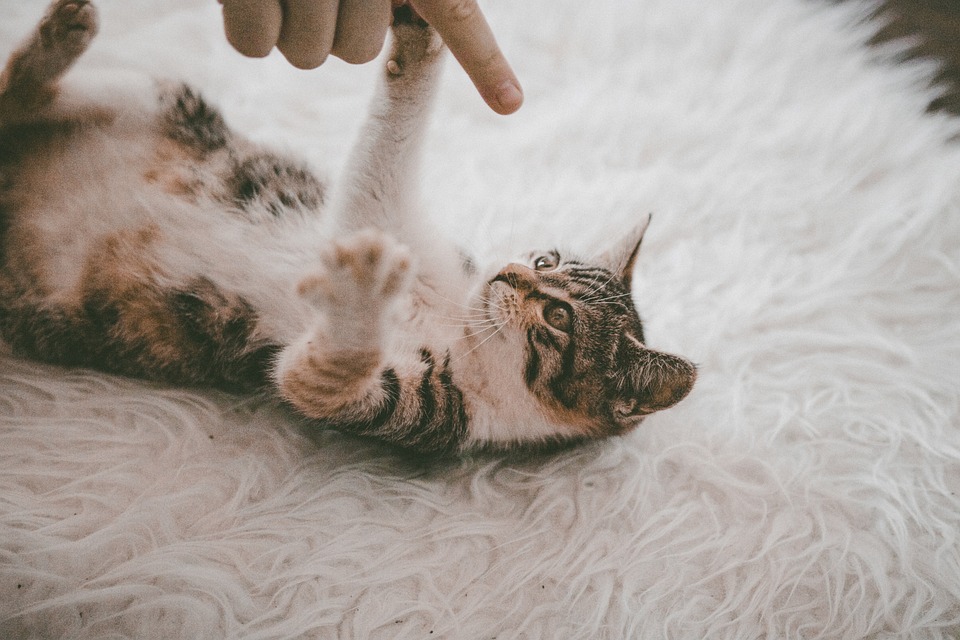Introduction:
As our feline companions age, they require extra care and attention to keep them comfortable and ensure their mobility. This article will provide valuable tips and insights on how to provide the best possible care for your senior cat, enhancing their quality of life. Additionally, we will address some frequently asked questions about senior cat care.
I. Understanding the Aging Process in Cats
– Signs of aging in cats
– Common health issues in senior cats
– Importance of regular veterinary check-ups
As cats age, they may experience changes in their behavior and physical abilities. It is important for cat owners to be aware of the signs of aging, such as decreased activity levels, changes in appetite, and increased sleep. Senior cats are also more prone to certain health issues, including arthritis, dental disease, and kidney disease. Regular veterinary check-ups are essential to catch any potential health problems early on and provide appropriate treatment.
II. Creating a Comfortable Living Environment
– Providing a cozy and warm sleeping area
– Ensuring easy access to food, water, and litter boxes
– Minimizing stressors and creating a calm environment
Senior cats may have difficulty jumping or climbing, so it is important to provide them with comfortable sleeping areas that are easily accessible. Placing food, water, and litter boxes in easily reachable locations can also help older cats. Additionally, minimizing stressors such as loud noises or sudden changes in routine can help create a calm environment for senior cats.
III. Promoting Healthy Nutrition
– Choosing a specialized senior cat diet
– Incorporating supplements for joint health and cognitive function
– Monitoring weight and adjusting portions accordingly
Senior cats have different nutritional needs compared to younger cats. Choosing a high-quality senior cat diet that is specifically formulated for their age can help maintain their overall health. Additionally, supplements such as glucosamine and omega-3 fatty acids can support joint health and cognitive function. It is important to monitor your cat’s weight and adjust their portion sizes accordingly to prevent obesity or weight loss.
IV. Encouraging Exercise and Mobility
– Low-impact exercises for senior cats
– Engaging in interactive playtime
– Utilizing scratching posts and climbing structures
Regular exercise is important for senior cats to maintain muscle strength and joint flexibility. Low-impact exercises, such as gentle play sessions or short walks, can help keep them active. Interactive playtime with toys can also provide mental stimulation. Providing scratching posts and climbing structures can help senior cats stretch their muscles and maintain mobility.
V. Managing Joint Health and Pain
– Using orthopedic bedding and gentle ramps
– Incorporating joint supplements and medications, if necessary
– Considering alternative therapies such as acupuncture or physical therapy
Arthritis is common in senior cats and can cause pain and mobility issues. Using orthopedic bedding and gentle ramps can help make it easier for them to get around. Joint supplements, such as glucosamine and chondroitin, can provide relief for joint pain. In more severe cases, medications prescribed by a veterinarian may be necessary. Alternative therapies like acupuncture or physical therapy can also help manage joint pain in senior cats.
VI. Maintaining Dental Health
– Regular dental check-ups
– Brushing your cat’s teeth
– Providing dental-friendly treats and toys
Dental disease is common in senior cats and can lead to pain, difficulty eating, and other health issues. Regular dental check-ups with a veterinarian are important for early detection and treatment. Brushing your cat’s teeth regularly can help prevent dental problems. Dental-friendly treats and toys can also help keep their teeth clean and healthy.
VII. Monitoring Cognitive Function
– Recognizing signs of cognitive decline
– Stimulating mental activity through puzzles and toys
– Consulting with a veterinarian for potential treatments or medications
Senior cats may experience cognitive decline, which can result in confusion or disorientation. It is important for cat owners to recognize the signs of cognitive decline, such as changes in behavior or litter box habits. Providing mental stimulation through puzzles and toys can help keep their minds active. If cognitive decline is severe, consulting with a veterinarian for potential treatments or medications may be necessary.
VIII. Frequently Asked Questions (FAQs)
– How often should I take my senior cat to the vet?
– Are there any specific signs I should look out for to identify pain in my aging cat?
– Can I continue feeding my senior cat the same food they’ve been eating for years?
– What are some signs of cognitive decline in senior cats?
– How can I help my senior cat with arthritis?
Conclusion:
By implementing these tips and practices, you can ensure that your aging cat remains comfortable, mobile, and enjoys a high quality of life in their golden years. Remember, regular veterinary check-ups and open communication with your veterinarian are crucial for addressing any specific health concerns your senior cat may have. With proper care, love, and attention, your aging feline companion can continue to thrive and bring joy to your life for years to come.








